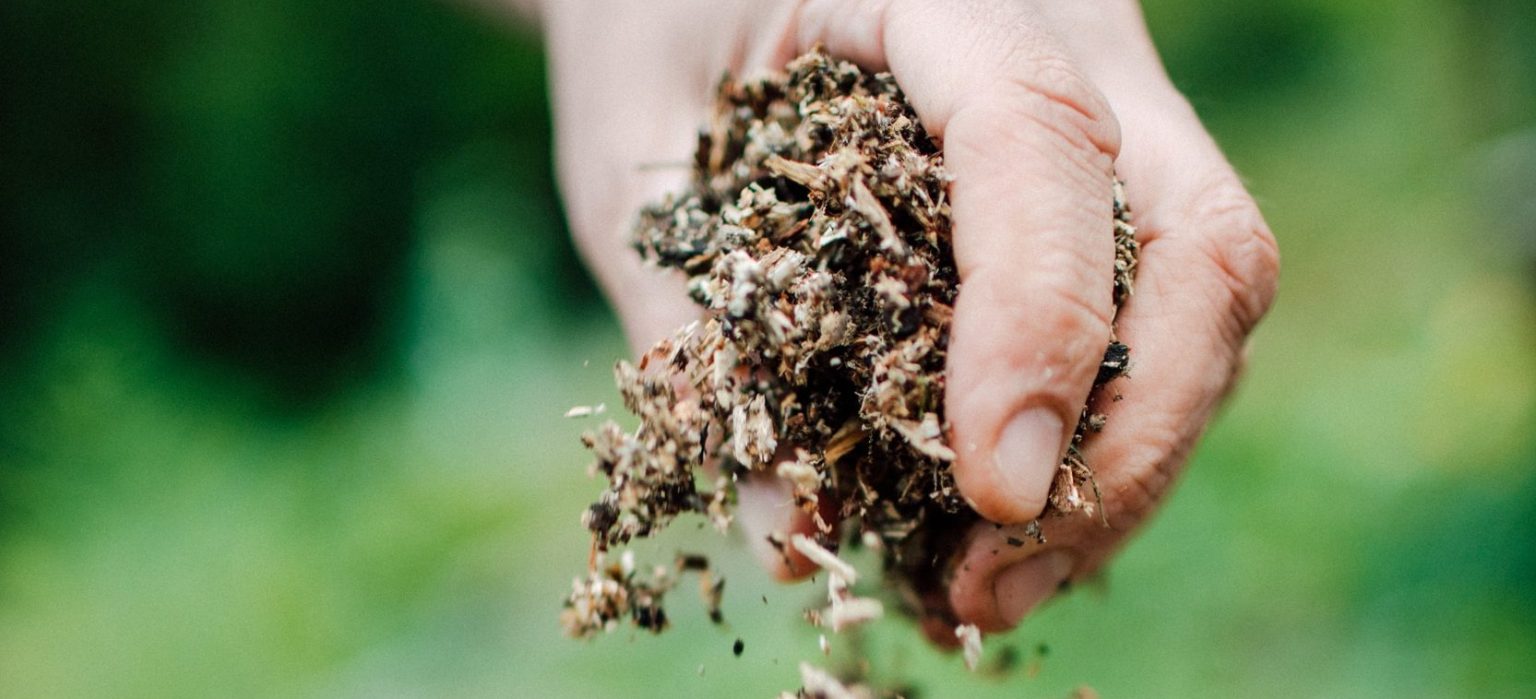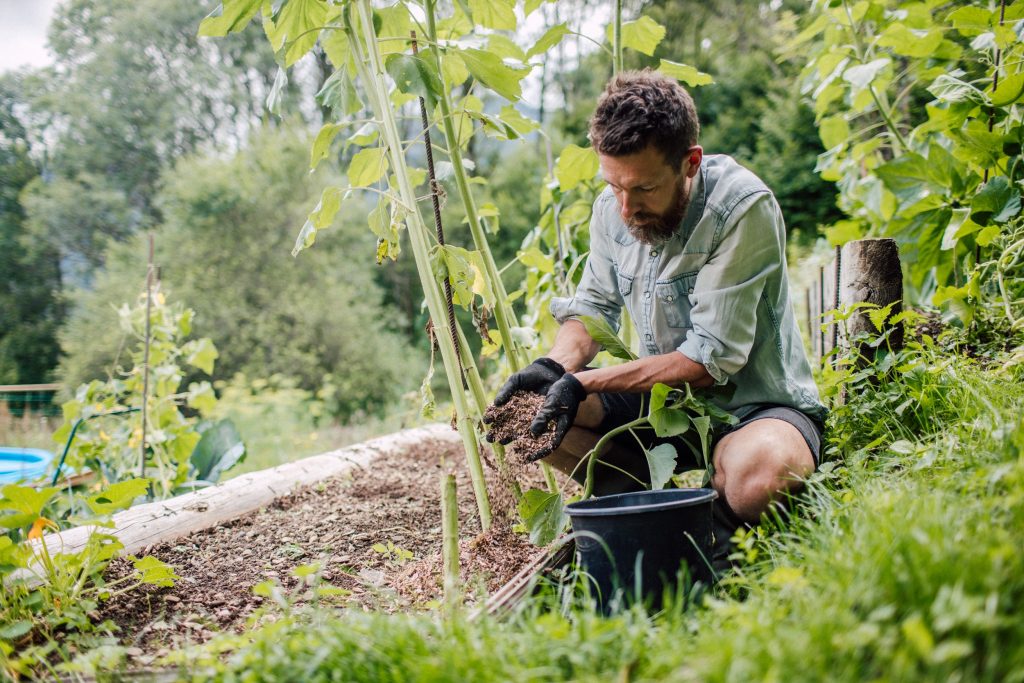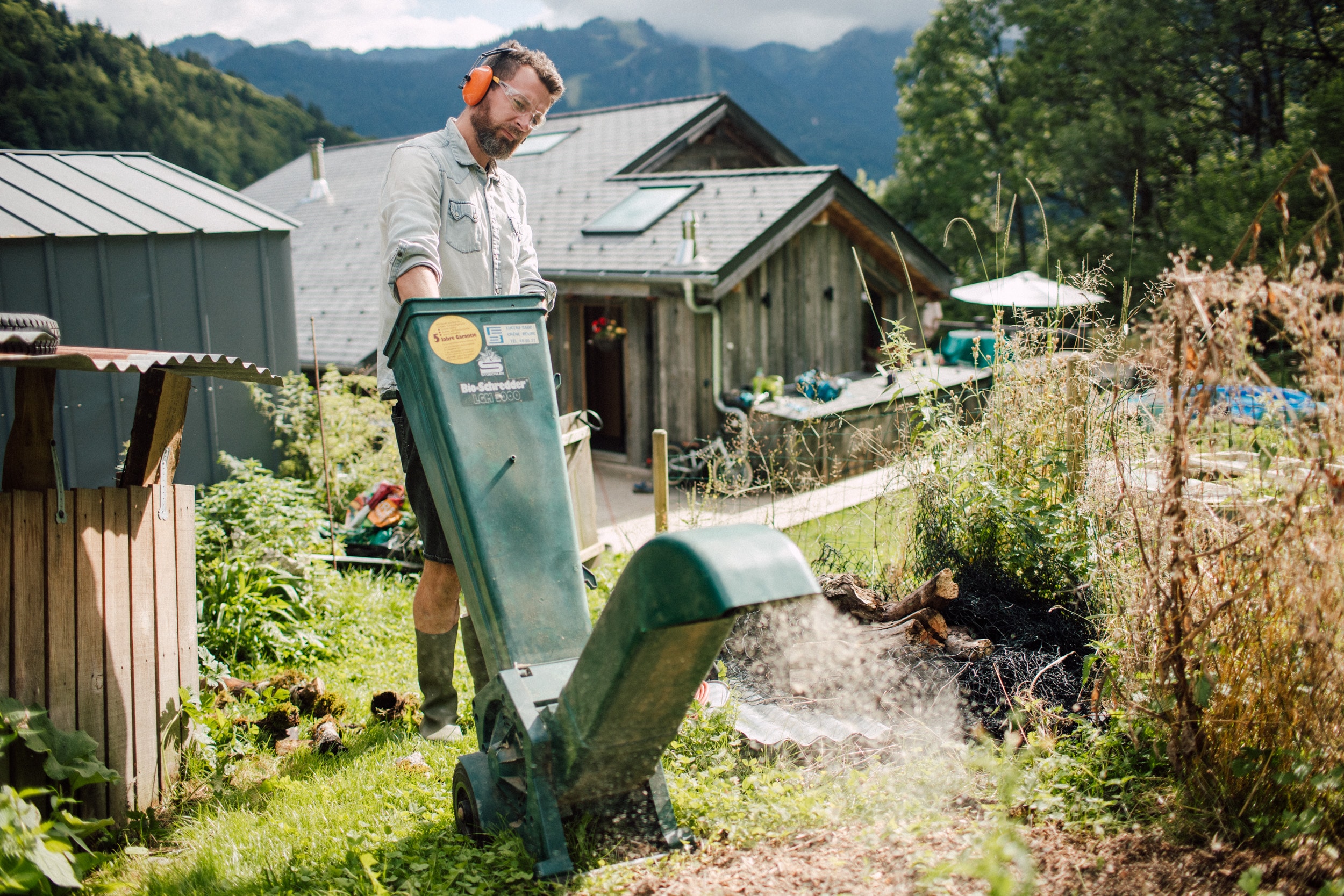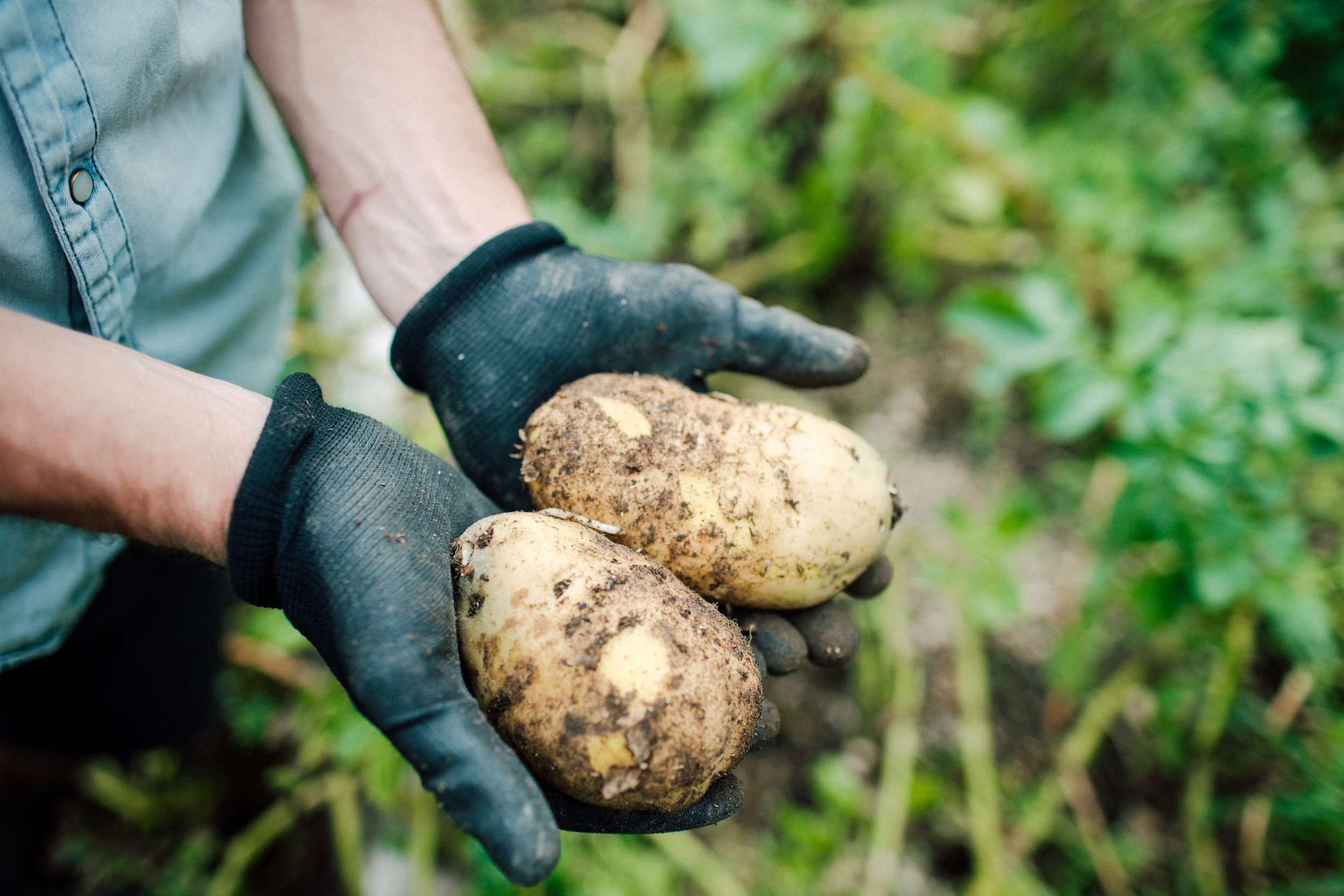
How to make wood chip mulch at home
In our permaculture garden, we are adopting natural, eco-friendly techniques to help our plants thrive. Vegetables and shrubs need well-hydrated, nutrient-rich soil, but bare soil can get damaged by a number of factors, such as persistent weeds, direct sunlight and drying winds. Organic mulch made from wood chips is a great solution, safe for the environment and easy to make at home.
But how do you go about making it?

Why should I use mulch in my garden?
Mulch is a thick layer of material placed over the soil and around plants. This extra layer of protection will suppress weeds and lock-in moisture, whilst reducing erosion from the natural elements. Organic mulches also contain natural nutrients, which plants will benefit from, and while they’re breaking down they attract beetles, worms and other soil invertebrates, which provides food for birds.
What’s more, making your own mulch from wood chips is a great way to use up discarded branches, fallen trees and other pieces of wooden material that has fallen in and around the garden. Although it may seem like a big job to begin with, applying mulch can save time in the long run by reducing time spent weeding, watering, fertilising, and controlling pests. Use wood chip mulch in the vegetable garden, around spring bulbs, under fruit trees as an attractive top dressing.

How do I make it?
Making wood chip mulch takes just a couple of hours, here’s how:
- Find your wood source or gather loose pieces of wood into small piles and be sure to remove any rocks as you go. Recently we’ve been mulching a tree that fell down a couple of years ago– the wood inside has started to rot, which means its full of nutrients and perfect for the vegetable garden.
- You’ll need a wood chipper, or if you don’t have one you can usually rent one from a hardware store (or borrow from a friend).
- After reading the instructions, and putting on the safety glasses, feed in the wood to start mulching.
- When your mulch is ready, prepare the plant beds by clearing away any weeds, sticks, and other debris from the soil and smoothing it out with a rake.
- Now add an even layer of around 2 to 3 inches below your plants, using a rake to distribute evenly. Spray with a thin layer of water to help it stay in place.
Tip: Beneficial times to mulch are spring and autumn, topping up in-between if needed
How does it help the Planet?
Creating organic mulch from materials in your garden, as opposed to buying inorganic mulch, will create a healthier ecosystem that is more beneficial for your garden. Some types of inorganic mulch can disintegrate into the soil, heat up the planting area and potentially leak harmful chemicals into the soil.
Our vegetables are thriving and have really benefited from the wood chip mulch we applied in the Spring. This season, our guests will enjoy carrots, potatoes, nuts and preserved fruits, all grown in our permaculture garden.

AliKats Mountain Holidays is a sustainable chalet company in the mountain resort of Morzine in the French Alps. Our range of luxury chalets provide a wonderful base for skiing in winter, rejuvenating mountain retreats and active summer holidays.
Join us on our sustainability journey as we step up our efforts to counter the climate emergency. You’ll find us at home, in the garden, in our chalets and just about everywhere behind the scenes as we get our hands dirty and get practical about saving the planet. As we hone our skills on sustainable living, we will be sharing what we learn on our Instagram, Facebook feed and here on our blog.
Ready to get kitted out for your ski holiday? Why you should avoid buying stuff
As planet-conscious skiers and snowboarders we need to look beyond the eco-credentials of outdoor brands. We caught up with the co-founder of Re-Action Collective and founder of Alps-based social enterprise One Tree at a Time, Gavin Fernie-Jones, to find out how we can be more sustainable when it comes to…
Continue reading...Working towards carbon neutrality: How our guests’ carbon contribution is making a difference
If you’ve booked an AliKats holiday over the last year, you may remember a carbon neutrality transport contribution being added to the cost of your holiday. Here we explain why we introduced that contribution, what it amounted to and what it means for the planet. Minimising our carbon footprint is…
Continue reading...The Chicken Cycle: The benefits of gardening with chooks
Last year we introduced chickens to our garden and they’ve quickly become a fundamental part of our permaculture gardening system. They’re also comical creatures to have around, and the three youngest AliKats (Ivy, Wilf and Albie aged 8, 6 and 4) have loved being involved in taking care of them.
Continue reading...Making Organic Plant Feed Out of Nettles
What is it? Weeds are often considered a nuisance, but when prepared properly, stinging nettles have many benefits from a food source to a medicinal treatment to a garden fertilizer. Today we are sharing how to put the nutrients in nettles to good use by creating an organic liquid plant…
Continue reading...

